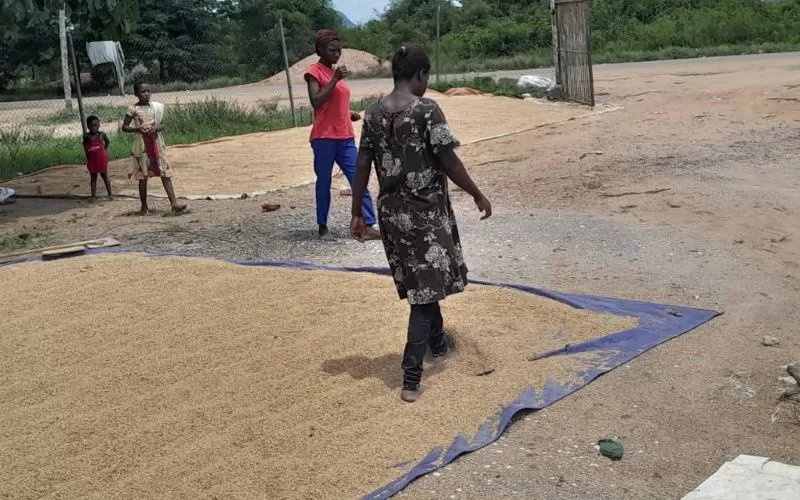Rice farmers at Akuse near Somanya in the Eastern Region, are compelled to use their feet to dry rice due to lack of mechanical dryers.
The farmers are part of a 3000-hectare government rice farming project at Akuse and Asutuare, under the Kpong irrigation project and a subsidiary of the Ghana Irrigation Development Authority.
Mr Eric Teye Martey Tsu, a farmer and aggregator, told the Ghana News Agency, that they faced a lot of challenges in the rice farming industry, including the lack of drying floors, mechanical dryers, storage facilities and combined harvesters, leading to huge annual post-harvest losses.
“Our major challenge that is the lack of mechanical dryers where we are forced under the circumstance to use our feet which affects the grain quality.”
He explained that the rice grain could often loose its quality three-days after harvesting without proper drying and said, “these challenges pose a disincentive to the youth who want to go into agriculture.”
Madam Doris Korkor Tawiah, a rice merchant, said the lack of mechanical dryers were affecting their business, as the quality of the grain was compromised.
“Everyone farms during the rainy season because rice does well in rain, so all of us harvest at the same time, and drying becomes a problem and if you’re not able to dry, within few days your grains will begin to germinate again, which leads to a huge loss,” she said.
Ms Tawiah noted that the local rice tasted better than that of the foreign and appealed to government to provide them with dryers to boost the rice industry.
Mr Samuel Evans Lamptey, the Project Manager of the Kpong Irrigation Project, said mechanical dryers were the solutions to stop the use of bare feet to dry the rice, adding that the entire rice farm project had no dryers.
He said the farmers used to hire a dryer from a private company which unfortunately, had stopped operating now.
Meanwhile, the Eastern Region Food and Drugs Authority Boss, Ms Anita Owusu Kuffuor, has cautioned the farmers against using their feet, as it could lead to the contamination of their produce.















